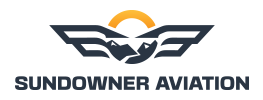Bi-Annual Flight Review
Has it been over 2 years since you had a flight review or flight review qualifying activity? We can help you regain your proficiency and get you flying again. A flight review consists of a minimum of one hour of ground and one hour of flight. Our instructors take a personal approach in tailoring your flight review to the type of flying you are interested in doing. By concentrating on the areas in which you feel you need the most help, you come away from the flight review with renewed confidence in your abilities. At the conclusion of your flight review, you will receive an endorsement from one of our instructors certifying you accomplished your Flight Review.
A flight review is not required if the pilot, within the 24-calendar-month period:
- Completed one or more phases of the FAA “Wings” program;
- Received a new pilot certificate (sport, recreational, private, commercial, flight instructor, or ATP;
- Passed a practical test to renew, reinstate, or add an additional rating to their Instructor Certificate.
- Received a new rating (instrument, multiengine, or glider);
- Flies for a Part 121 (air carrier) or 135 (air taxi) operation and satisfied the appropriate proficiency checks.
Complex Aircraft
A complex aircraft is defined as an aircraft with retractable landing gear, a constant speed propeller, and flaps (or if the aircraft is driven by a turbine engine).
Cost: instructor plus complex aircraft rental (if needed.)
